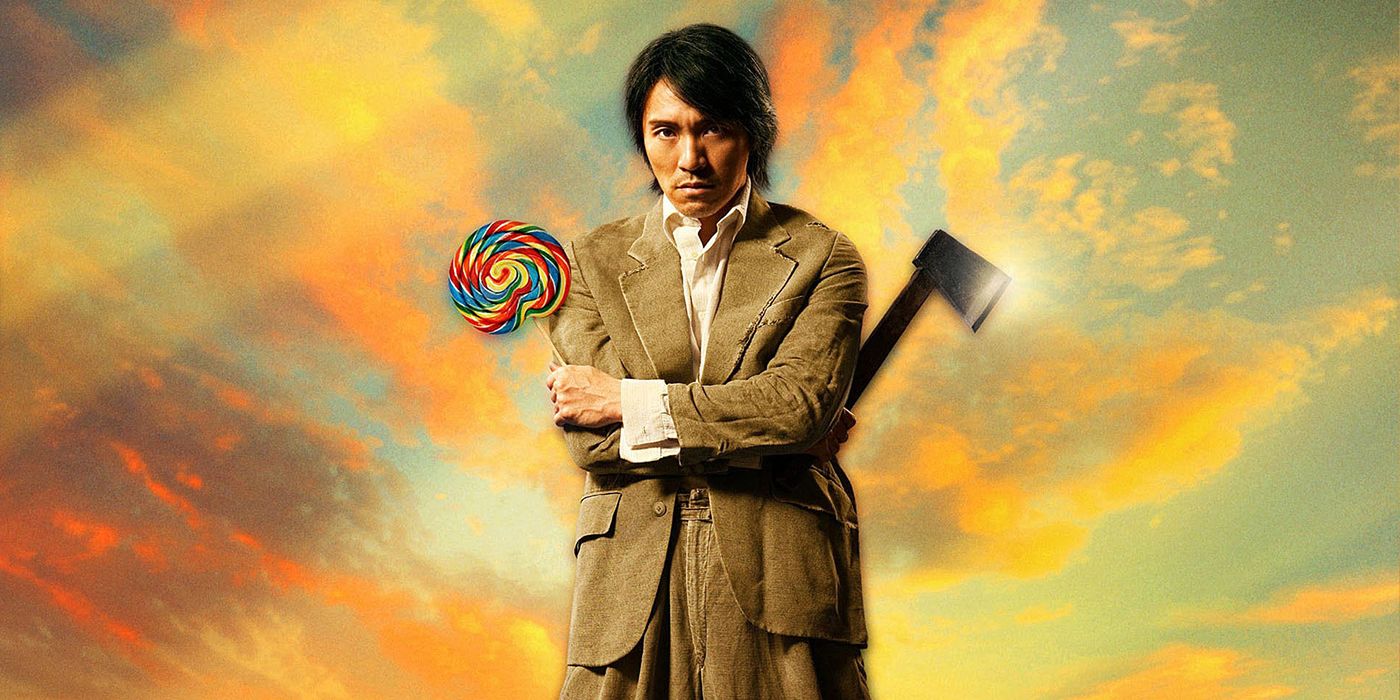
What if people could run at super speed, leap to incredible heights, and take all kinds of punches without hardly flinching? This is the world of Stephen Chow's 2004 action flick Kung Fu Hustle, where the normal limits of the human body don't exist nor do the laws of physics. The action sequences are gratuitously excessive, but these sorts of over-the-top depictions of bodies and what they're capable of are exactly what appeal to audiences across the world.
The film's fixation with bodies is apparent from the start when we're introduced to the people of Pigsty Alley. Even the most unsuspecting residents like little boys and old people are revealed to have insanely strong bodies to a comical extent. However, it's not just those with visible muscles who are able to kick ass. One of the original top warriors was an effeminate tailor, and even the landlady has phenomenal physical abilities like running at super human speed and "the lion's roar". While most films depict the masses as ordinary folks who are generally boring, Pigsty Alley provides an alternative vision of reality in which practically everyone is physically powerful and able to fight off bad guys. Furthermore, Kung Fu Hustle challenges the notion set forth in The Incredibles that if everyone is special then really nobody is. Instead, viewers are likely to believe that the people of Pigsty Alley are indeed special, precisely because they are a mass of seemingly regular people who are actually anything but that.
The main character also has spectacular capabilities. In one humorous moment, his sidekick accidentally throws three knives in his shoulder, and soon after he is attacked by snakes. Just a few scenes later, though, our man is as good as new, shoulder and swollen lip completely healed. He later shows off his skills in kung fu and all of the acrobatics that come along with a well-choreographed fight sequence. The final showdown between him and the Beast is of course excessive. Both men do so many things that humans can't do in real life, but that's why audiences are watching.
Characters like James Bond, Captain America, and the people in Kung Fu Hustle use their bodies to pull off wild stunts and come out unscathed, and this language of movement transcends national boundaries. David Bordwell writes in one chapter of Planet Hong Kong: Popular Cinema and the Art of Entertainment, "In many movies, the chief pleasures are pictorial," which holds true especially in the case of action films (7). People don't go to gratuitously violent summer blockbusters for the dialogue; they go for the visual spectacle, including seeing bodies moving and acting on screen in ways that they can't in the real world. Regardless of what sort of cultural background we come from, we want to see the impossible become possible, and popular cinema allows us to do that.


